Found an old bag of salt that’s way past its date? You considered throwing it out, but then you thought: does salt expire? Can it actually go bad?
Your instincts were right – salt lasts years, and the one that’s in your bag is probably perfectly okay to use.
Want to learn more? Read on.
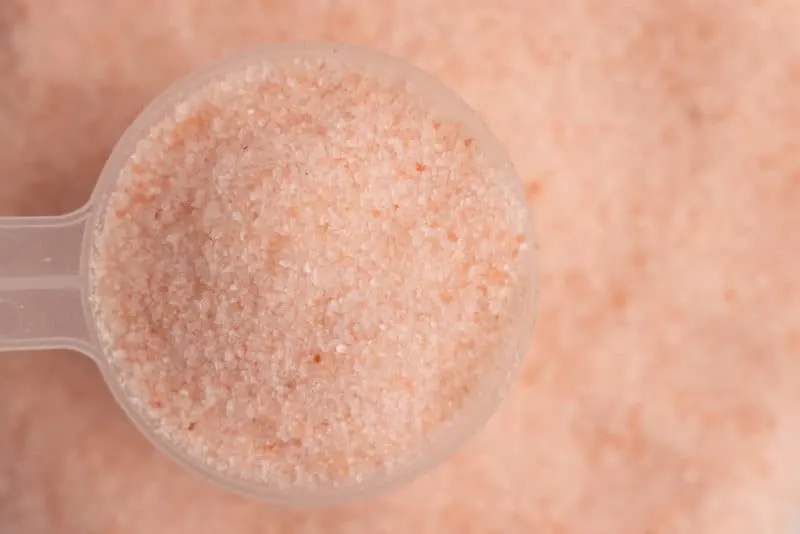
Does Salt Expire? Can It Go Bad?
Salt, including all of its popular varieties such as table, kosher, iodized, or Himalayan, doesn’t expire. Even though it’s considered a spice (and certainly used as one), it’s a stable mineral composed mostly of sodium chloride (NaCl).
While salt doesn’t go bad on its own, in some cases it might turn out useless or unsafe to eat. Such cases include:
- Salt that has large clumps. If this happens, chances are water got into the container. You can break up the lumps using a fork, but you will end up with much bigger crystals (i.e., a much coarser salt). It’s up to you if using such salt makes sense for your dishes or not.
- Salt that’s infested with pantry bugs. If any pests find their way to the bag or container, they will die in there. If you notice any in your salt, throw it out.
- Salt that doesn’t look the same way (color- or appearance-wise) it looked when you bought it. That’s unlikely to happen, but if it does, discard that salt. Please remember that different salts look different: Himalayan salt is pink (see my photos), kosher is coarser, and sea salt is often darker and with an uneven color due to impurities ([HARV]).
Small clumps are okay – you can get rid of them by pinching them with your fingers.
Long story short, if your salt looks normal and there isn’t anything extra in the bag or container, it’s fine.
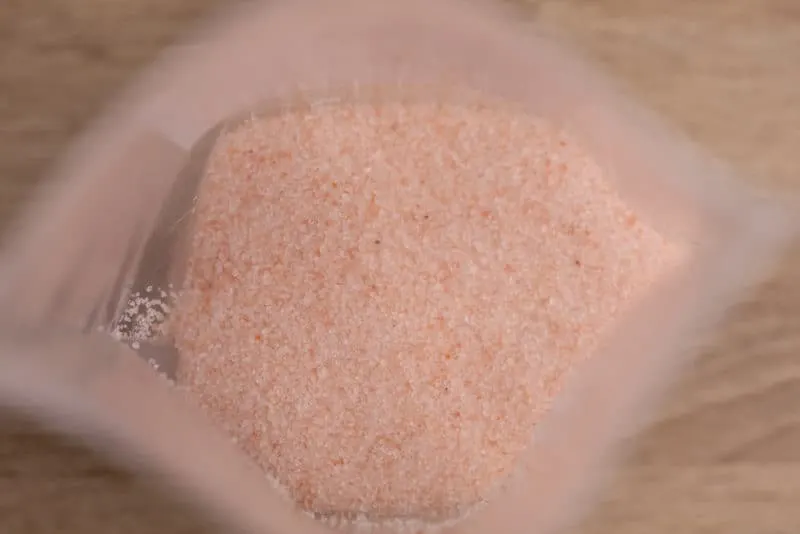
How Long Does Salt Last?
Salt doesn’t go bad, and it lasts for as long as you store it properly. That’s because it doesn’t contain water and inhibits any bacterial growth because it dehydrates anything it gets in contact with via osmosis.
If there’s a best-by date on the label (or something like that), it has little to do with food safety. It’s most likely there because the retailer (or the law) required it to make customers trust the product more (most of us trust food products with a date more than ones without).

In other words, salt isn’t like ground pepper, chili, or thyme – it doesn’t lose its flavor over time. The salt that you buy today should taste roughly the same as the one you bought 10 years ago.
Plus, salt is one of the most popular food preservatives, and that wouldn’t make any sense if it spoiled in a year or two, right?
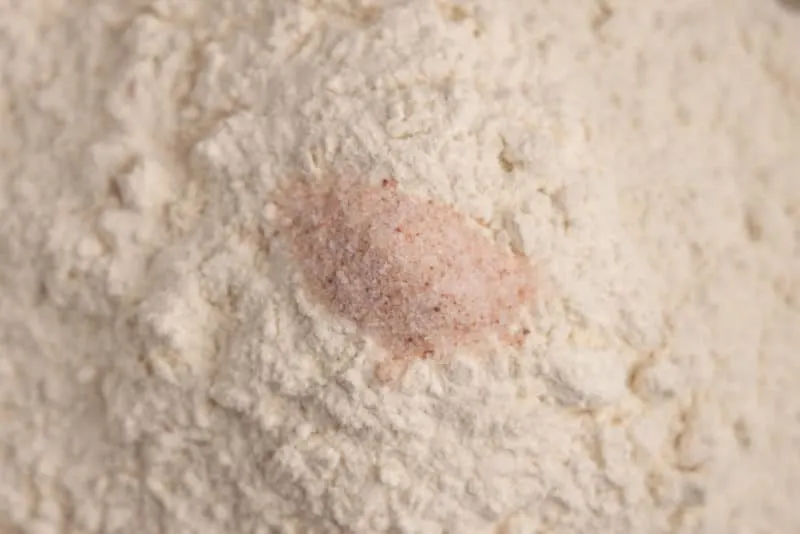
Wondering why salt doesn’t clump even if it’s stored for years? Most commercially available salts include a small amount of an anti-caking agent that takes care of that. If your salt forms lumps, consider adding a desiccant to the container ([WIKI]).
Remember that while sodium chloride is stable, any other substances (like nutrients or minerals) that the salt might contain often aren’t. That means if you’re eating an ancient iodized or Himalayan salt, you might not get the full benefit out of it.
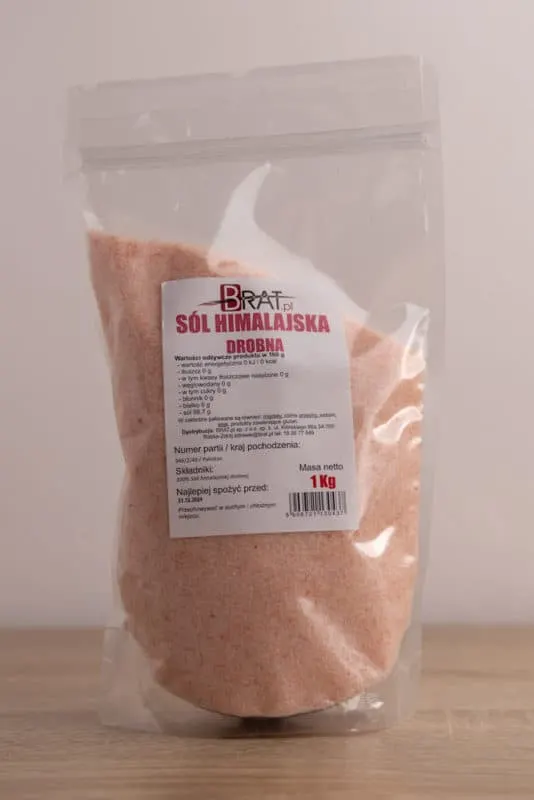
How To Store Salt
For long-term storage, keep salt in a cool and dry place (like the pantry), sealed tightly. For short-term storage, like a couple of months, a salt shaker or one of those decorative kitchen containers are perfectly fine.
As I already mentioned, salt doesn’t need much in terms of storage requirements.
If you keep it well sealed (in an airtight container or bag), neither pantry bugs nor moisture will get to it. It can sit in the corner of a pantry cabinet for years until you’re ready to use it.
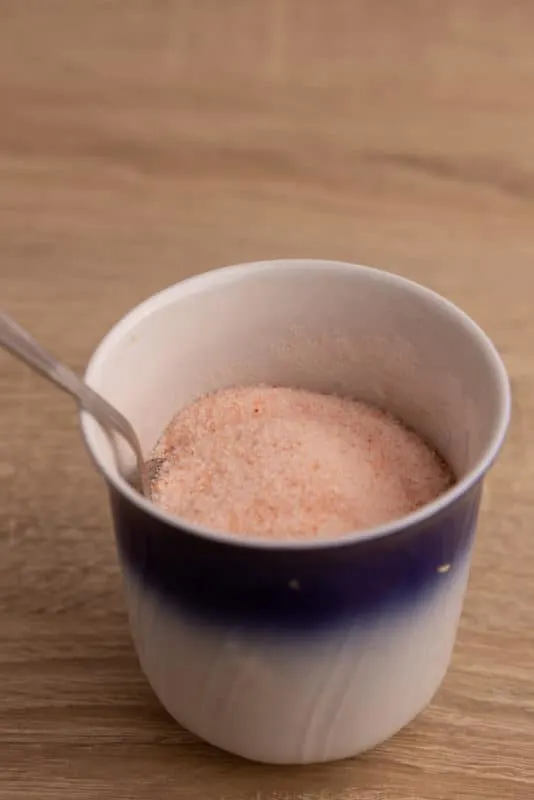
Of course, keeping the salt stored away would be quite inconvenient if you’re using it regularly. That’s why many of us keep a small amount in a salt shaker and have it within arm’s reach in the kitchen.
While that solution isn’t perfect, it works fine if you use that amount and refill the shaker at least every couple of months. I keep salt in an old cup (that’s not sealable or anything) that I fill every half a year or so, and I never had any issues with salt clumping or anything else.
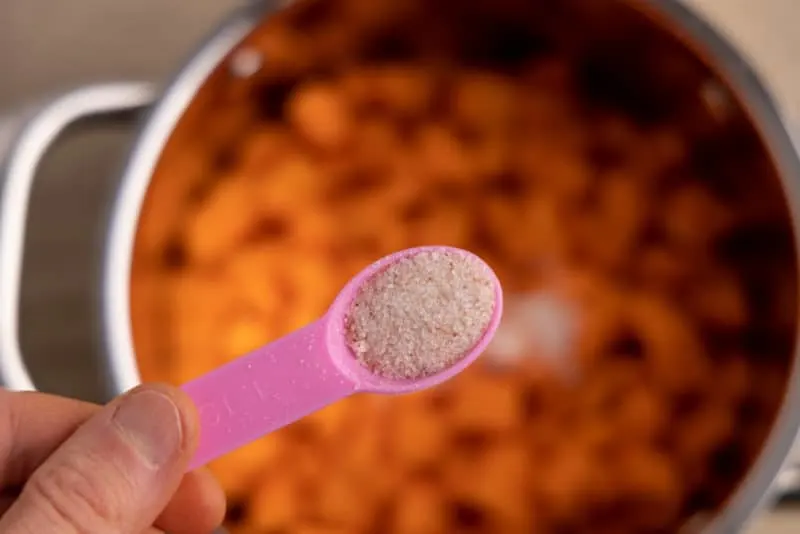
Summary
- Salt doesn’t expire. As long as there are no large lumps, dead bugs in the bag, or changes in color or appearance, it’s fine.
- Best-by dates on salt are usually there either because of legal requirements or to make the product more trustworthy.
- For long-term storage, keep salt in a cool and dry place, sealed well. For short-term storage, a salt shaker or a decorative container that looks nice on display is fine.
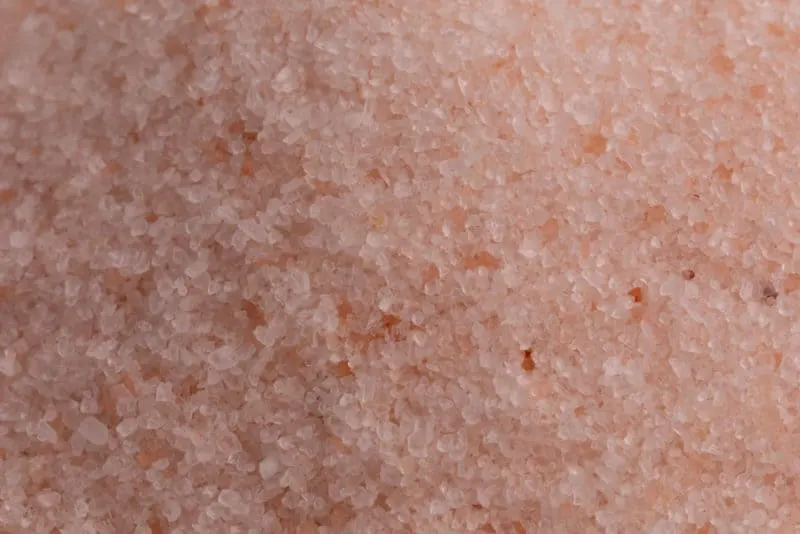
References
- HARV – Salt and Sodium | The Nutrition Source
- WIKI – Salt – Wikipedia